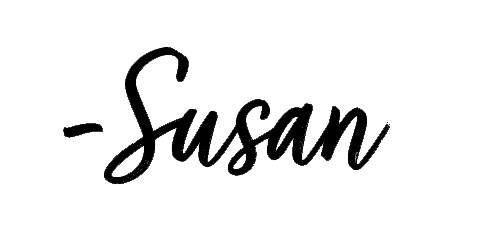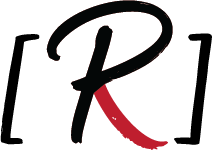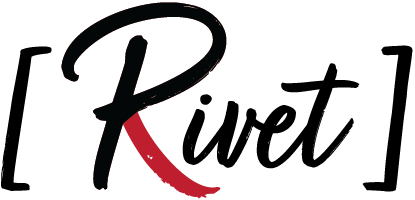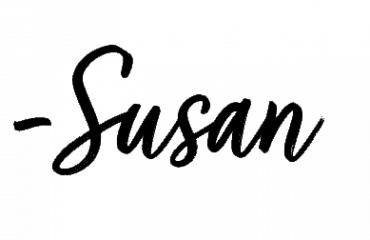
In my last blog post, I discussed what a professional proofreading service provides and how to interview and work with a professional proofreader. This week’s post covers what a professional editing service means, directed explicitly at written material. This post also discusses how to look for and work with a professional editing service.
Although authors commonly use editors, businesses also use editors to make sure their writing pieces and marketing content are error-free and match a company’s work quality and image.
Just like last week, I am avoiding the fluff and diving directly into the information. Read on to learn more about what editing is, the different levels of editing services professionals provide, how to determine what type of editor you need to hire and what to look for in an editor.
What is Editing?
Editing involves changing a draft of work to get it ready for publication. Wikipedia goes into more detail with its definition of editing and states,
“Editing is the process of selecting and preparing written, photographic, visual, audible, or cinematic material used by a person or an entity to convey a message or information. The editing process can involve correction, condensation, organization, and many other modifications performed with an intention of producing a correct, consistent, accurate and complete piece of work.”
Editing is a collaborative process. A professional editor works with the creator to offer suggested changes that will make the piece better. But, the creator can ultimately decide if those suggestions will improve the writing.
You might have used or are familiar with editing for film, photography or books. But, businesses also benefit from editing services. Companies often hire proofreaders to clean up any grammar, punctuation, and spelling mistakes. But proofreaders can also offer editing services to make sure content properly represents the company’s brand, image and target customers.
Copy editors or proofreaders with business experience can offer valuable input similar to editing services on the quality and tone of a piece and its impact on the business and impression on customers.
If you are an author, you can employ an editor at the beginning of your writing journey or at the end to correct your final draft, depending on what type of help you need.
Professional editing services typically provide three standard levels of editing, offering these services separately or in a combination or package. The three levels of editing that professional editors provide:
- Copy Editing
- Line Editing
- Developmental Editing
Copy Editing
Copy editing is a valuable service for authors who have a final draft of their manuscript and are looking for more extensive corrections than proofreading. A professional copy editor usually offers the following services as part of copy edit:
- Fixing awkward sentence structure.
- Ensuring words, phrases and punctuation are consistent.
- Correcting any errors or inconsistent use of verb tenses.
- Adjusting sentences so they flow naturally and avoid repetition.
- Ensuring dialogue includes the appropriate punctuation and authentically matches the characters’ tone.
- Checking for consistency and mistakes in the descriptions of characters, scenes and timelines.
- Basic document formatting including correcting spacing and indentations.
- Correcting any mistakes in numbering pages, table of contents, chapter titles or captions.
For businesses, copyeditors can be a valuable resource. Including the above, and specific to companies, a copy editor can provide:
- Creating style guides and ensuring copy follows established style guidelines. An editor can use a style guide provided by the company or a standard style guide used by most editors such as the AP Stylebook.
- Checking hyperlinks are correctly formatted and will access the correct webpage.
- Matching the tone of the piece to the target audience and making sure the message represents the brand and company appropriately.
- Flagging any copyright usage issues.
- Proofing tables and graphs.
Copy editors may offer add-on items such as:
- Fact-checking
- Catching and plagiarism, even if it is unintended
Line Editing
Where copy editing services fix mostly errors, line editing takes on a more artistic view of correcting text and manuscripts. Thus, copy editing is also called stylistic or paragraph-level editing.
Editors offering line editing will go line-by-line through the manuscript and look for stylistic corrections and suggest improvements to enhance the quality of writing. Line editing does not rewrite the work but primarily focuses on retaining the original intent and the writer’s voice.
Editors hired for line editing usually work collaboratively with their clients. As a result, there may be several conversations between the author and editor to answer questions and review any suggested changes.
Line editing includes such services as:
- Evaluating the pace of the writing. Ensuring the writing is engaging and thoughtfully paced to keep the reader’s interest.
- Making sure the message is clear and readers understand the writing. Line editing improves clarity by moving paragraphs or sentences to other areas or changing word choices.
- Smoothing transitions between paragraphs and chapters.
- Cutting unnecessary jargon and obscure words to engage readers further.
- Evaluating the word choice to make it appropriate for the intended audience.
- Overall evaluation of the piece to make sure the writing flows logically and the tone is on point.
- Removing any unnecessary words or sections.
- Correcting any misuse or inconsistency with the point of view.
I find line editing most suitable for authors that spill out great ideas in writing and may lose sight of the overall purpose. Line editing helps bring focus to ideas and makes sure the intended audience will clearly understand the concepts and points the writer is trying to get across.
Developmental Editing

Developmental editing involves a high-level evaluation of an author’s writing and should be hired early on in the writing process. Most developmental editing starts after an author completes their first draft. The editor will complete a full read of the manuscript and provide the author a report including suggestions on how to improve the writing.
Developmental editing can also be called substantive editing, structural editing or content editing. Developmental editing requires a more significant investment for authors but can substantially improve the author’s chances of producing a solid piece for publishing and reduces several burdens the writing process can take on authors.
You do not have to finish the first draft to hire a developmental editor. Instead, I offer developmental editing to authors who have several solid ideas in their heads but struggle with organizing their thoughts.
Outlines are a beneficial tool a developmental service can offer authors to help them begin the writing process. Outlines are a very helpful tool for any writer. Creating outlines can organize thoughts, outline story concepts, build story structure and develop characters.
If an author submits a first draft, developmental editors will read the manuscript and create an editorial report or overall critique. My developmental editing reports typically run about eight to 10 pages and may include charts, graphs and sample outlines to illustrate my suggestions. This evaluation covers significant issues with the story’s structure, pace and character development.
- A full read of the manuscript and overall critique. A summary of strengths and weaknesses and what needs to change to enhance the appeal and further engage readers.
- Plot development and check for the proper sequencing of events.
- Ensure the plot is organized and structurally sound.
- Character development.
- Analyze viewpoint. Is the point of view used effectively used?
- Making sure elements are not missing in the plot, usually termed “plot holes”.
What Type of Editing Service Do I Need?
If you are a writer looking for an editor to improve the quality and effectiveness of your writing, first consider where you are in the writing process.
- Developmental editing is a good option for writers looking for structure and direction after completing the first draft. Usually contracted at the beginning of the writing process, developmental editing brings value to writers who have several thoughts but do not know how to organize ideas. Writers at this stage may also consider a writing coach, writing group or accountability partner to help nudge them to start putting their thoughts on paper.
- Line editing works well if you have a first, second or third draft and need improvements with the writing style. A line editor can spot confusing or unclear areas, repetition and divergence from the main point or tone. Line editing offers suggestions on improving the writing to make it clear, concise and easy for a reader to understand and enjoy. Remember that line editors are usually not employed as copy editors or proofreaders. Line editors will not fix punctuation, grammar and spelling errors, but may call out a few significant mistakes.
- For authors who have an excellent grasp of their writing but want mechanical help near the end of the writing process, copy editing is a good option. Copy editors make sure facts are straight, large errors in sentence structure are corrected, dialogue punctuation is used correctly and other essential checks. Copy editing ensures writing is clear, correct and concise.
- If you are looking for a person to correct grammar, spelling, punctuation and any minor formatting errors, a proofreading service will be able to get the job done.
Editors for Business
So far, this article has concentrated on authors, but if you are a business, an editor can still be very valuable for a business. A qualified editor can make sure content and copy is error-free. Whether it is an internal report, presentation, website, web content, or other marketing materials the editor ensures the content matches the target audience and represents the brand image appropriately.
Businesses commonly employ or contract editors. Editors for a company are also called content editors, copy editors, substantive editors, or proofreaders with editing services.
What to Look for When Hiring an Editor?

When it comes time to look for an editor, be sure the person you are looking to hire meets basic qualifications first. An editor should have a Journalism, Communications or English degree. A candidate with a firm grasp of the English language and an editing certificate from a certified program is also a good option. Not everyone takes the traditional educational route, so if you find a person with a lot of work experience as an editor, that person may also be a good option.
Above all, find someone who is currently active and up-to-date in the editing community. I often see authors ask a good friend that has a knack for editing or is an avid reader to proofread or edit their work. I get it; free versus fee is great, and I also started editing using this route. But, these well-intentioned friends may not have the software tools, education, or are up-to-speed on the literary community’s latest developments. As a result, you may end up paying more in time for an editor to fix their mistakes.
Some great places to find editors are:
- ACES: The Society for Editing
- Editorial Freelancers Association (EFA)
- The Chartered Institute of Editing and Proofreading (CIEP). The CIEP is based in the UK, but several members live in the United States.
Do not shy away with an editor that does not live in your area. Freelance editors live worldwide and often work remotely. Speaking from experience, I only have one local client and hardly ever visit the office to work with the team.
Editors are also available through standard contracting job websites such as Upwork and Fiverr. Stay aware of editors that may charge too little for their services. Sometimes this means the person is new to editing and is looking for experience. I find these people usually do a great job and often deliver more than expected. However, a low pay rate may also result in low-quality work.
I advise researching the candidate’s qualifications and experience and seeing if they match the position. It is also essential to make sure you communicate the job requirements to the editor before hiring.
One essential aspect an author needs to look for in an editor is personality. The author typically is highly invested on a personal level with their writing. Finding an editor who appreciates the writer’s hard work and matches well on a personal level is essential. Great editors are usually kind with their suggestions, understand your point of view and the topic of your writing, and listen and communicate well.
Editors should be great listeners so they can understand what you are trying to achieve. However, because editors spend a lot of time listening, writers can often get carried away with talking about their writing and passions to their editors. Remember that editors eventually have to work on your writing, and they may charge you for this listening time.
Coming from an editor, I believe the most critical personality attributes to look for in an editor include:
- Empathy and kindness
- Great listening skills
- Great communication skills
- Personality match
If you are a business looking for an editor, you will also want to contract or employ a person who has earned a Journalism, Communications or English degree. You can also look for someone with equivalent experience. Look for someone with strong communication skills and a firm grasp of the language you are working with, preferably a native language speaker.
On the personal side, look for a good work ethic, someone who understands the importance of meeting deadlines and works well with the team. It is not always vital that they are a complete match with the corporate culture, but working well with a team is essential.
Before you employ an editor for your business, make sure you are clear about how you want the editor to communicate and submit changes. In addition, make sure the editor is familiar with any software you will be using to share work.
Finally, introduce the editor to the team, and try to integrate them as much as possible. No one wants to be blind-sided by a stranger making corrections to their work. If the team has a good understanding of the editor’s purpose, then the transition to using an editor will go more smoothly.
How Much Does an Editor Cost?
This article covered a general overview of the different editing services you can use if you are an author or a business. However, many editors will offer a mix of editing services, create individualized packages to meet your needs or use different terms to describe their services.
Editors typically charge by the word count; however, if you are looking for a developmental editor and do not have a word count, an editor may charge by the hour.
For a good idea of how much different editing services cost, check the EFA’s editorial rates from their recent member survey here: https://www.the-efa.org/rates/. These rates also include business writing services.
Unless the editor is new to the business and is looking for first-time work, or you are contracting a good and kind friend to do the job, be cautious of rates that are too low. Do not be fooled by prices posted on the web in a quick search for average rates.
Final Thoughts
The type of editor you need highly depends on where you are in the writing process. Armed with the information listed above, you can start looking for an editor that fits your situation. However, the best advice is to narrow down the candidates and then find the editor that can best deliver results the fit your specific situation.
Next week, I will discuss beta reads and how this service I offer authors adds value and improves a book before publication.
If you are looking for an editor or do not know where to start, I would love to chat with you about your situation or ideas. So please contact me to get started.

Sources
https://en.wikipedia.org/wiki/Editing
https://www.the-efa.org/wp-content/uploads/2020/12/Guidebook-for-new-authors-2020.pdf
https://www.slideshare.net/beyondpaperediting/bpe-copyediting-services-and-prices-grid-1-jan2014
https://www.masterclass.com/articles/what-is-line-editing – how-to-line-edit
https://unsplash.com/@sarahdorweiler






